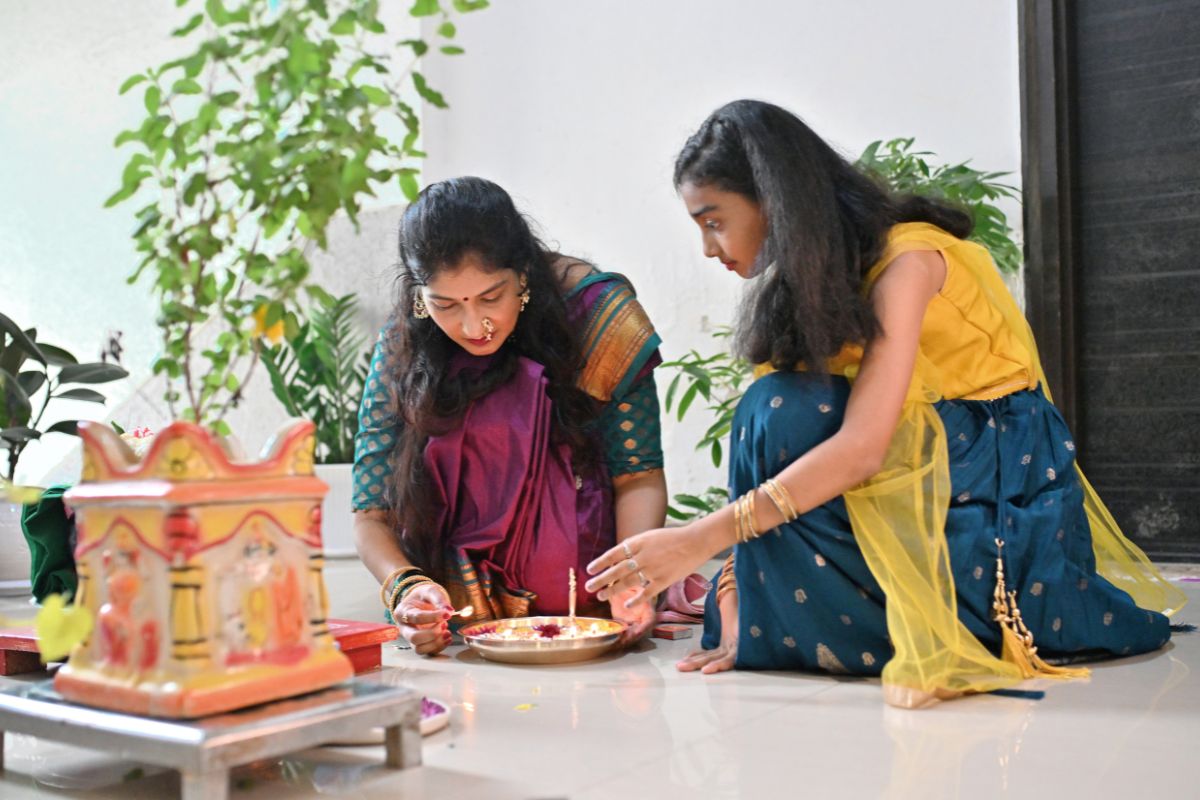


Usually involving the whole family, the celebration is conducted with much festivity and energy. Feasting and Prasad Distribution: Once the marriage festivities are over, a big feast is laid. Devotees break quickly to enjoy the happy feast. Shared among neighbors and relatives, prasad—sanctified food—symbolizes the sharing of divine blessings. Devotees present Lord Shaligram fruits, sweets, and flowers together with the Tulsi plant. Special offerings like bhog (ritualistic food) are provided in search of blessings for wealth and well-being prepared and presented during the puja. Finally Beautiful event combining family intimacy, dedication, and custom is tulsi vivah. Apart from a religious observance, it celebrates culture stressing the ideas of faith, purity, and celestial protection. Deep ingrained convictions and the ongoing connection between Goddess Lakshmi and Lord Vishnu determine the rituals followed during Tulsi Vivah.
Table of Contents
ToggleBased in Hindu mythology, the story of Tulsi Vivah revolves on Vrinda, a devoted wife of the demon king Jalandhar. Vrinda’s constant loyalty and purity bestowed upon Jalandhar invincibility. Lord Vishnu disguised himself as Jalandhar and went to approach Vrinda, breaching her chastity, trying to beat Jalandhar. Knowing the dishonesty, Vrinda cursed Vishnu, turning him into Shaligram, a black stone. Vishnu swore to wed Vrinda in Shaligram annually, atonement for the deed. Hindu legend holds Vrinda’s soul reincarnated as the holy Tulsi plant.
Among Hindus, tulsi vivah is quite spiritually and culturally important. Since the festival marks the start of the Hindu wedding season, it is a lucky time for unions. Celebrated as a divine event bringing benefits of wealth, harmony, and protection to homes is the union of Tulsi (Goddess Lakshmi) and Shaligram (Lord Vishnu). With Tulsi standing for loyalty and purity and her union with Lord Vishnu guaranteeing the safety and well-being of followers, this event is also considered as a symbol of the triumph of good over evil. It marks the release of negative energies and the entry of divine favors, therefore improving the spiritual environment of households.
Celebrated with tremendous dedication and delight, Tulsi Vivah rites abound in symbolism. The celebrations start like this:
Also Read: ibomma
Finally Beautiful event combining family intimacy, dedication, and custom is tulsi Vivah. Apart from a religious observance, it celebrates culture stressing the ideas of faith, purity, and celestial protection. Deep ingrained convictions and the ongoing connection between Goddess Lakshmi and Lord Vishnu determine the rituals followed during Tulsi Vivah.

